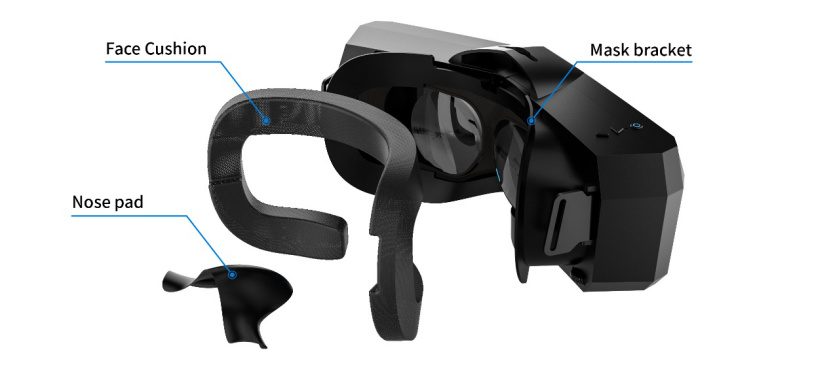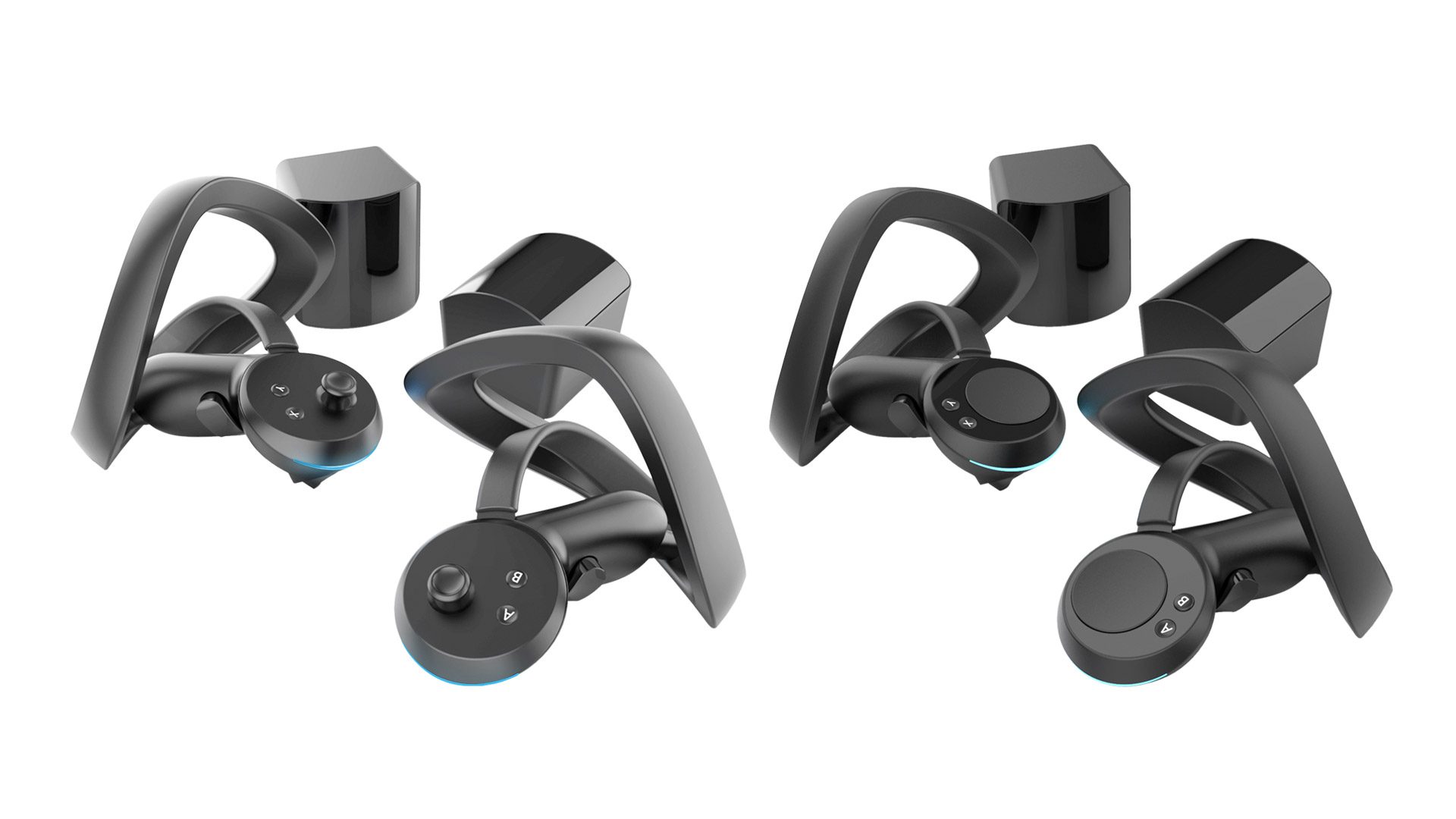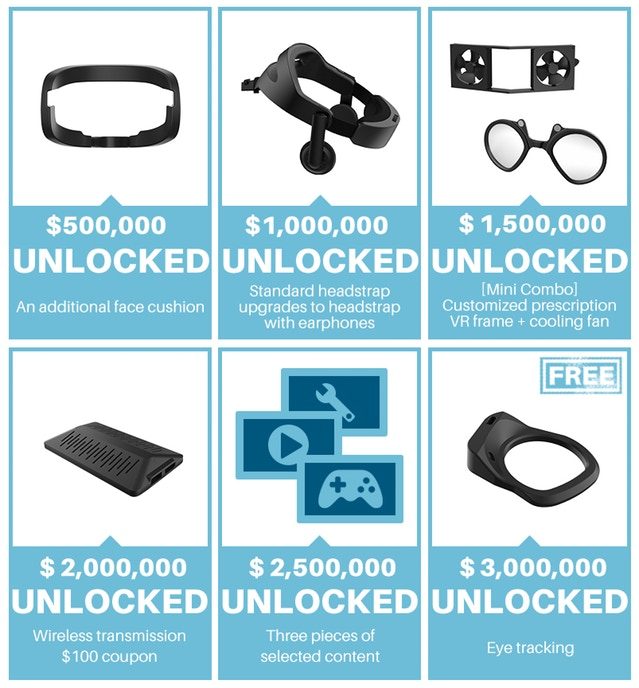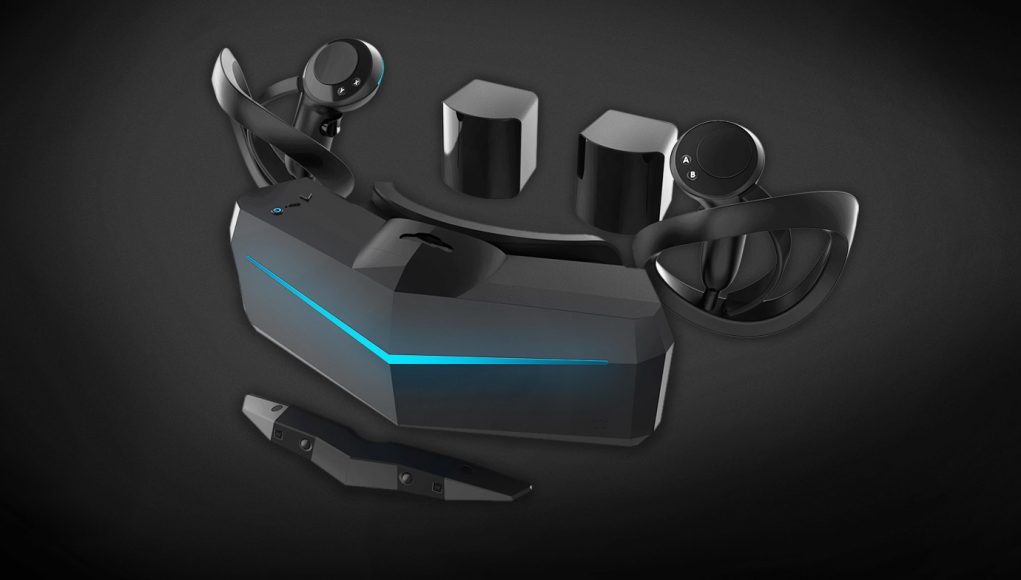Pimax is continuously tweaking their lineup of wide field of view VR headsets in effort to hone in on a finished product. To that effect, the Beijing-based company has just issued a new statement detailing some material refinements coming to new “5K+” and “8K” headsets, and some news on the long promised accessories too.
Pimax says in a forum post today that its line of headsets are getting a minor overhaul in ergonomics, bringing with it a new fabric head strap, a more comfortable face cushion with “best viewing distance”, and a different nose pad that aims to improve comfort while reducing light leakage.

The quality of life updates however aren’t the biggest changes coming to Pimax’s line of headsets. Serious hardware concerns such as fractured exterior shells, sub-par cabling, and weak headphone jacks are all getting a makeover.
The company is aiming to reduce the incidence of flickering pixels, or what they call the “snow effect”, by introducing a new cable with enhanced shielding. Pimax says they’ll be rigorously screening and testing the cables moving forward. The company has also automated their screening process for optical issues such as dead pixels.
Pimax mentions that they’re bringing improvements to the 3.5mm headphone jack by increasing the soldering strength, something the company says can now withstand “more than 3,000 insertions and removals.”
The headsets’ housing has also been cause for concern, although Pimax says it doesn’t have anything to do with its remarkably thin plastic exterior. Pimax says that microfractures in the housing mating points were “a low probability issue” caused by the cooling and deburring process, and they’ve reviewed these processes to ensure a more reliable output.
The headsets’ shipping material is getting an overhaul too, with the company stating that they’ve uncovered issues caused during transport and have developed a new packaging design in response, something they maintain is “much more resilient and passes a higher standard shock drop resistance test.”
Pimax Accessories
Pimax says the latest controller prototypes will arrive next month, the Valve Index-style controllers called ‘Sword’ and ‘Sword Sense’. The company says they plan on manufacturing both of these variants—one with a thumbstick and the other with a touchpad—for many years to come.
“Because of this it is important these devices are more than competitive with other marketplace offerings,” the company writes. “As always with Pimax we take into account feedback we see across the VR marketplace and we realize how important it is we get our Pimax controllers ‘right’.”

While the floppy head strap is getting an update, the optional Rigid Audio Head strap is now undergoing ergonomics testing too. Still no ETA, but it’s nice that it’s gotten a mention.
Although we thought Pimax was going to beat Valve to the punch by finally selling SteamVR 2.0 base stations on their lonesome, the company says they’re currently in production, but that they’re bundling the base station with their controllers “due to shipping costs.” The set, which includes two controllers of any flavor and two SteamVR 2.0 base stations currently costs a $300 deposit. Again, no ETA on these ones either.

The headset’s Hand Tracking Module is on a bit of a bumpy road. Promised back in the Kickstarter days, Pimax says that it’s been delayed due to Leap Motion’s acquisition by ULtraHaptics. UltraHaptics is however reportedly restarting production of the module, although Pimax says “this transition has taken some time.”
There’s still no word on when the eye-tracking accessory will arrive, although the company did show it off this year at CES 2019 in January.
Pimax’s continued work on their line of headsets is commendable, but it’s hard not to feel like a beta tester when the company is constantly retooling their product every few months. Even we have a hard time keeping the myriad of hardware updates straight, although Pimax is decidedly still delivering their headsets to consumers and directly responding to criticism.
What’s missing in all of this is an identifiable timeline, but we’re keeping our eyes peeled for concrete info on when prospective users can expect to see these updates in future Pimax headset iterations.







